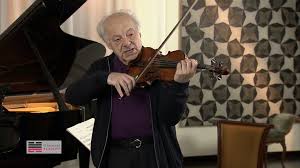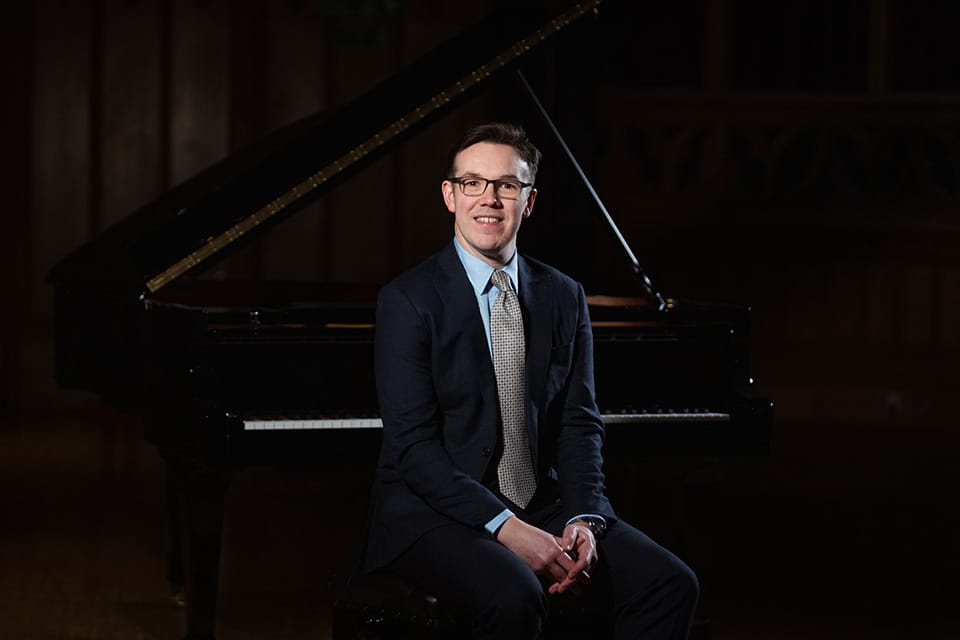Personal reasons are the new ‘indisposed’
mainJust in from Covent Garden:
British mezzo-soprano Christine Rice has withdrawn from the role of Donna Elvira due to personal reasons. The role will now be sung by Greek soprano Myrtò Papatanasiu, making her Royal Opera debut.
‘Personal reasons’ is the new catch-all, replacing ‘indisposed’. It covers anything from a septic toe to a flaming row to a major issue in an artist’s private life.







It is certainly comprehensive. We seldom learn the real reason, mostly don’t need to, but may wonder how much respect is shown to colleagues and audience.
Give artists a break.
Without singers and instrumentalists daring to put themselves on the line, you will have nothing to write about apart from the demise of a once beloved and supremely relevant art form.
Try to put yourself in their shoes: self-employed, highly functioning, vulnerable, talented, spirited, not paid unless they perform, and then that is not always guaranteed…
Once taxes, artist manager’s fees, coaching, travel, accommodation, let alone child-care costs if relevant are deducted, there are few artists even at the top of their game who command the kind of incomes that highly trained professionals in other areas of life feel they are entitled to earn. They may enjoy some glory years when higher fees and prestigious gigs come in with greater regularity but these are to be balanced with expensive training and years of performing for low/poor fees at a time of life when many would anticipate a degree of financial security. This is not an argument to feel sorry for artists for their life choice, but at least to show some compassion and degree of solidarity as musical colleagues.
The general public is not ‘entitled’ to know the detailed reasons for an artist’s cancellation-that information, as in other areas of life is offered on a need to know basis. Artists are not chattels, they are individuals who willing put themselves up for scrutiny even when on so many occasions they are not 100%.
Be kinder, less waspish, it doesn’t cost, it is not weak to show empathy and it might even help the artists and the art form you purport to love.
I totally agree, but what the heck does being waspish have to do with it? (By definition in the US)
I don’t see why we should have sympathy when the statement says simply ‘indisposed’ or ‘personal reasons’, with no explanation. It’s hardly cynical to suspect that conductors and soloists sometimes withdraw from important engagements because they’ve received a better offer, or they just don’t fancy turning up, or they’re saving themselves for the big gig round the corner, or they’re a bit tired. I’d suggest that most conductors and soloists have done it at least once, and a few do it on a suspiciously frequent basis. You can’t assume the worst on a case-by-case basis, but we all know it happens. Individual artists may not like the thought that some people will take the cynical view, but as long as they’re prepared to issue the blandest of withdrawal statements with no explanation then so be it.
There *isn’t* a better gig than singing Donna Elvira at Covent Garden. Poor Christine will have had an extremely good reason for pulling out. She will be as disappointed not to be performing as the public will be who won’t get to hear her. We can’t possibly pull out of engagements in a cavalier way to do other “better” engagements. We have contracts which we can’t break, and people would definitely find out if we were pretending to be ill and sneaking off to do other gigs. Are you suggesting that she has a “secret” other engagement at the Met? Gosh. I hope no one goes to hear it, or Covent Garden might get to her about it. Ridiculous.
I met with Christine briefly exactly a year ago whilst visiting London on holiday from Canada. Believe me, she had a voice problem and cut our visit short due to having to see a doctor. She had the good sense to give up the role of a lifetime in order to recooperate. I hope she’s well now and will get another chance at Elvira. She deserves it.
So why do many of them behave like perennial victims?
+1,000
Of course your argument is quite legitimate–artists are not chattels. But there’s another perspective to consider. If an artist has developed a fan base, which presumably they aim to do, and fans travel to see him/her and incur significant expenses to do so, and that artist withdraws constantly, then the responsibility that artist has to his/her public should come into play. You can’t ask the public to follow you and then constantly disappear without explanation, yet still expect constant loyalty from your fans. For example, my husband and I are great fans of a well-known baritone and have spent considerable funds to see him perform–even traveling to Europe to hear him. Yet we arrive at the performance to learn that evening that he’s withdrawn. This has happened three times now. Needless to see we will no longer follow him. Pavarotti was barred from Chicago’s Lyric Opera after canceling so often. Again, artists also have a responsibility to their public.
Artists do have a responsibility to their public – agreed. But they also have a responsibility – not only to their public, but also to the promoters that engage them – to turn up and be at their very best, particularly if they have a loyal fan base and that is just not always humanly possible. Remember, they are judged every time they perform.
If singers in particular are booked several years in advance for a new role, they may only realise nearer the time that it no longer suits and they cannot do it justice – voices can change as they mature – or they have misjudged the amount of time it takes to learn it and get it under their belt. To perform it would be a disservice both to the promoter and the public. Artists are also away from home for long periods of time and this can take its toll on their mental health and personal lives – particularly if they have to balance the needs of their families as well as their own careers. Artists often cancel because of reasons beyond their control and they may not want personal circumstances (such as relationship breakups or family problems) made public. Of course, some take the mick and cancel because of better offers elsewhere etc etc but these are very few and far between – as someone who works in the industry, I know that when an artist cancels, it’s usually for good reason and they simply wish to retain their privacy.
Your usual hope as a working singer at any level is that the management and company like your work and will invite you back.
You hope you are healthy and have the courage to trust your technique and share what you have rehearsed for many weeks.
You hope you give pleasure and entertain the audience. You lean on them as you perform, needing to believe they wish you well so that you can dare to release your breath, connect with your support and the character.
Singers don’t sing because they want ‘fans’, they sing because they have to, they are impelled to do it, they find a means of self-expression through other people’s words and honouring a composer’s intentions.
The real responsibility is to the music and text-as fans you may feel you have developed a relationship with a particular artist you admire but you do it in the complicity of a performance. If a singer cancels then they do it with sadness anxiety, trepidation, occasionally supressed relief, rather than a cavalier disregard for their audience.
As for the symphony musician in the thread earlier it is a pity you side so swiftly with the cynics. I appreciate it is challenging to avoid with the pressures of the profession but you don’t exactly help the case for arguing the transformative nature of classical music, where and how long ago did you lose your joy?
One of the best posts I’ve ever seen on this site !
Thanks, ‘in bocca’
it’s like a politician or business tycoon forced to resign so he can spend “more time with his family.”
Or in the case of British MP Jo Johnson, so he can spend less time his family.
What’s your point?
So does being an opera singer mean you have no right to privacy?
You have a duty to your paying audience.
When an audience has paid hundreds sometimes thousands in tickets and travel arrangements predicated on your appearance, I agree. But the sacred show biz motto, “The show must go on” appears to be out the window based on the commentary here. Cancellations can be unavoidable and completely understandable. But every effort should be made to honor a commitment.
“Exhaustion”- maybe?
Opera singers are human. They get sick, they get divorced,
they get depressed and burned out. Because they are such unique , talented people, it is tempting to ascribe superhuman qualities to them, but the difference between an opera star and an Joe average is a pair of vocal cords that vibrate differently and musicality that is inborn or learned. So, give them a break. They sing better when they are well and rested.
Who said it’s anything like that? Speculation! In any job one chooses to do in life, you owe it to your colleagues and those paying you your salary, least of all owe it for your own integrity, if you don’t turn up. Indisposed or Unavailable or For Personal Reasons doesn’t cut the mustard in any profession. Pays to be honest and then keep it simple.
Salary? What salary? No sing, no pay. It’s piece work, not salary.
They are honest…with their employees. Nobody else needs to know.
Similarly, when the shop assistant at the supermarket is off sick, I don’t need to be told.
…or to some princess or other feeling ‘bullied, harassed..’ ..you name it.
Well, “indisposed” has always sounded euphemistic. “Personal reasons” may be very broad, but it’s honest.
Personal reasons? Tell them the cat has died or decided the role want right? Singers owe it to their colleagues and audience to say why bit very sinply. Mark Elder and Sarah Connolly were both very upfront and honest when they both had to pull out of major concerts at the Proms, so earned our respect.
As a singer, I couldn’t agree more. Be upfront for without a paying audience we are unemployed and redundant. As a mezzo, I wonder why she was ever going to sing a traditionally lyric soprano role, the likes of Heather Harper sang, not mezzo Josephine Veasey or Janet Baker? Christine Rice sings Gerontius well, and no soprano would do the reverse and sing that even if they can sing all the notes well. Never the notes on the page, but where it lies in the voice, the tessatura. It is not good for the voice to push it beyond its limits.
Wow, you are a tough colleague I hope you are more generous when rehearsing and performing. In my experience the higher you go in this profession the more decent and forgiving the performers become. If you go in punching so hard it is a little unlikely your palate of vocal colours would offer melt as a possibility.
“Tessitura” – just sayin’.
Bottom line is our culture has given audiences a sense of entitlement to know reasons for cancellations. They’ve cancelled. It’s not our business to know why. We’re not their employer. It’s prurient. Like obituaries citing cause of death and if not people get annoyed. They died. Deal with it! Cause of death is private.
Cut musicians a break. They deserve privacy.
Agreed. I expect the musician will assess whether they can deliver the performance we are expecting, and withdraw in a timely fashion if they feel they cannot. I may be curious, but do not need to know why they won’t be performing. If I’m a booking agent or conductor, I’ll probably want some more details, if you don’t want to damage your prospects of another invitation, but again, if you honestly don’t think you will be able to deliver the goods, better that we have a chance to find a substitute who hopefully will.
Can it include getting a better paying gig elsewhere? What do contracts mean anymore?
I think this is extremely rare and it does a disservice to artists to suggest that this is why they usually cancel gigs. Promoters have been known to sue nowadays or will simply stop inviting an artist back if this is found to be the case – word gets around pretty quick if an artist cancels on a regular basis and is known to be unreliable. As mentioned above, artists are only human and usually only cancel for genuine reasons. If they don’t work, they don’t get paid – and reputation counts for a huge amount in a demanding and fickle freelance business. Don’t forget – careers can also be made from cancellations; think of Jennifer Davis’ recent huge success at ROH stepping in for Kristine Opolais in Lohengrin, which has now launched her international career.
No, it won’t usually mean “getting a better paying gig elsewhere”. If you are caught doing that (and you will be caught) you will rapidly find nobody wants to hire you.
Aside: of course, someone like Pavarotti might get away with it, but only because he is sooo famous.